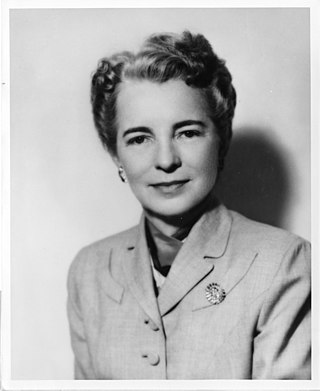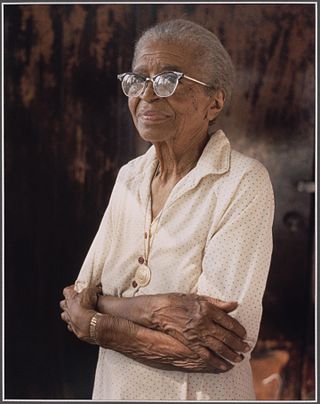Related Research Articles

The American Historical Association (AHA) is the oldest professional association of historians in the United States and the largest such organization in the world. Founded in 1884, AHA works to protect academic freedom, develop professional standards, and support scholarship and innovative teaching. It publishes The American Historical Review four times annually, which features scholarly history-related articles and book reviews.

The Royal College of Nursing (RCN) is a registered trade union and professional body in the United Kingdom for those in the profession of nursing. It was founded in 1916 as the College of Nursing, receiving its royal charter in 1928. Queen Elizabeth II was the patron until her death in 2022, King Charles III continued the royal connection and became patron in 2024. The majority of members are registered nurses; however student nurses and healthcare assistants are also members. There is also a category of membership, at a reduced cost, for retired people.

The Sigma Theta Tau International Honor Society of Nursing (ΣΘΤ) is the second-largest nursing organization in the world with approximately 135,000 active members.
The Doctor of Nursing Practice (DNP) is a professional degree in nursing in the United States of America.
The Endocrine Society is a professional, international medical organization in the field of endocrinology and metabolism, founded in 1916 as The Association for the Study of Internal Secretions. The official name of the organization was changed to the Endocrine Society on January 1, 1952. It is a leading organization in the field and publishes four leading journals. It has more than 18,000 members from over 120 countries in medicine, molecular and cellular biology, biochemistry, physiology, genetics, immunology, education, industry, and allied health. The Society's mission is: "to advance excellence in endocrinology and promote its essential and integrative role in scientific discovery, medical practice, and human health."

Mary Eliza Mahoney was the first African-American to study and work as a professionally trained nurse in the United States. In 1879, Mahoney was the first African American to graduate from an American school of nursing.

Claire Muriel Fagin was an American nurse, educator, and academic. She was an early advocate of family-centered care, with major contributions to psychiatric nursing, nursing education and geriatric nursing. Fagin was also one of the first women to serve as president of an Ivy League university.

Nursing in the United States is a professional health care occupation. It is the largest such occupation, employing millions of certified professionals. As of 2023, 3,175,390 registered nurses were employed, paid a median income of $86,070.
Health advocacy or health activism encompasses direct service to the individual or family as well as activities that promote health and access to health care in communities and the larger public. Advocates support and promote the rights of the patient in the health care arena, help build capacity to improve community health and enhance health policy initiatives focused on available, safe and quality care. Health advocates are best suited to address the challenge of patient-centered care in our complex healthcare system. The Institute of Medicine (IOM) defines patient-centered care as: Health care that establishes a partnership among practitioners, patients, and their families to ensure that decisions respect patients' wants, needs, and preferences and that patients have the education and support they need to make decisions and participate in their own care. Patient-centered care is also one of the overreaching goals of health advocacy, in addition to safer medical systems, and greater patient involvement in healthcare delivery and design.

Lavinia Lloyd Dock was an American nurse, feminist, writer, pioneer in nursing education and social activist. Dock was an assistant superintendent at Johns Hopkins School of Nursing under Isabel Hampton Robb. She founded what would become the National League for Nursing with Robb and Mary Adelaide Nutting. Dock was a contributing editor to the American Journal of Nursing and authored several books, including a four-volume history of nursing and Materia Medica for Nurses, the nurse's standard manual of drugs for many years. In her later life, she also campaigned for social reform, particularly women's rights.
Springer Publishing Company is an American publishing company of academic journals and books, focusing on the fields of nursing, gerontology, psychology, social work, counseling, public health, and rehabilitation (neuropsychology). It was established in 1951 by Bernhard Springer, a great-grandson of Julius Springer, and is based in Midtown Manhattan, New York City.

Nursing is a health care profession that "integrates the art and science of caring and focuses on the protection, promotion, and optimization of health and human functioning; prevention of illness and injury; facilitation of healing; and alleviation of suffering through compassionate presence". Nurses practice in many specialties with varying levels of certification and responsibility. Nurses comprise the largest component of most healthcare environments. There are shortages of qualified nurses in many countries.

Chi Eta Phi Sorority, Inc. (ΧΗΦ) is an American professional service organization for registered professional nurses and student nurses, representing many cultures and diverse ethnic backgrounds. Sarah Killian, DNP, RN is the current national president.
Teresa Thomas "Terry" Fulmer, is the current president of The John A. Hartford Foundation. Earlier positions include distinguished professor and dean of the Bouvé College of Health Sciences at Northeastern University and dean of the College of Nursing at New York University. She is known for her extensive research in geriatrics and elder abuse. She has received funding from the National Institute on Aging, the National Institute of Nursing Research and other foundations for her research regarding elder abuse.

Lucile Petry Leone was an American nurse who was the founding director of the Cadet Nurse Corps in 1943. Because the Nurse Corps met its recruiting quotas, it was not necessary for the US to draft nurses in World War II. She was the first woman and the first nurse to be appointed as Assistant Surgeon General of the United States Public Health Service.

The history of medicine in the United States encompasses a variety of approaches to health care in the United States spanning from colonial days to the present. These interpretations of medicine vary from early folk remedies that fell under various different medical systems to the increasingly standardized and professional managed care of modern biomedicine.
Rhetaugh Etheldra Graves Dumas (1928–2007) was an American nurse, professor, and health administrator. Dumas was the first Black woman to serve as a dean at the University of Michigan. She served as the dean of the University of Michigan Nursing School. She also served as deputy director of the National Institute of Mental Health, becoming the first nurse, female, or African-American to hold that position. She is said to have been the first nurse to use the scientific method to conduct experiments that evaluated nursing practices.

Eunice Verdell Rivers Laurie (1899–1986) was an African American nurse who worked in the state of Alabama. She is known for her work as one of the nurses of the U.S. Public Health Service Syphilis Study in Macon County from 1932 to 1972 which was "arguably the most infamous biomedical research study in U.S. history."

The history of nursing in the United States focuses on the professionalization of Nursing in the United States since the Civil War.

Margaret Scott-Wright was a Professor of Nursing at the University of Edinburgh, and later head of nursing schools in Canada. Her research related to public health and nursing education. In 1971, she became the first professor in Nursing Studies in the United Kingdom.
References
- 1 2 3 "About AAHN". American Association for the History of Nursing.
- ↑ "Membership Information". American Association for the History of Nursing.
- ↑ Judd, Deborah; Sitzman, Kathleen (2014). A History of American Nursing: Trends and Eras (2nd ed.). Jones & Bartlett Learning. p. 46. ISBN 978-1-4496-9720-4.
- 1 2 "Board of Directors and Leadership". American Association for the History of Nursing.
- ↑ Lewenson, Sandra B.; Hermann, Eleanor Krohn, eds. (16 November 2007). "Chapter Twelve. Ethical Guidelines and Standards of Professional Conduct by Nettie Birnbach". Capturing Nursing History: A Guide to Historical Methods in Research. pp. 167–172. ISBN 9780826115652.
- ↑ "Teresa E. Christy Papers". University of Iowa Archives.
- ↑ Jones, David S.; Greene, Jeremy A.; Duffin, Jacalyn; Harley Warner, John (2015). "Making the Case for History in Medical Education". Journal of the History of Medicine and Allied Sciences. 70 (4): 623–652. doi:10.1093/jhmas/jru026. PMID 25395574.
- ↑ Reverby, Susan M. (Winter 1987). "Review of Nursing History: The State of the Art edited by Christopher Maggs". Bulletin of the History of Medicine. 61 (4): 658–659.
- ↑ "Research Awards". American Association for the History of Nursing.